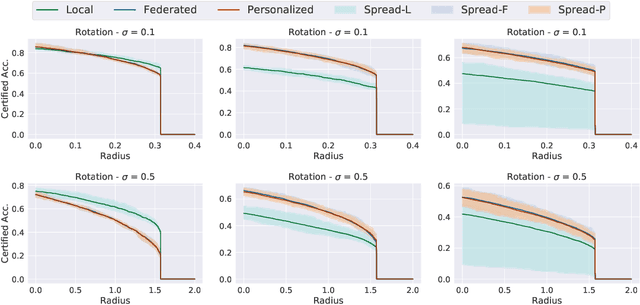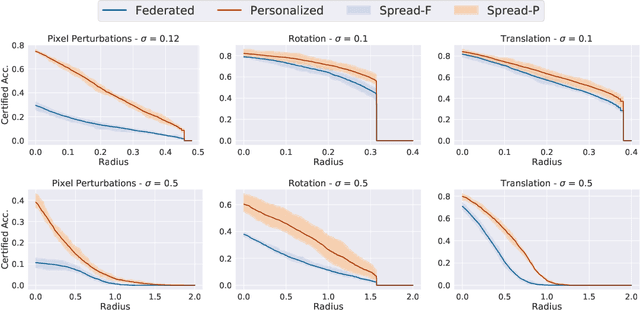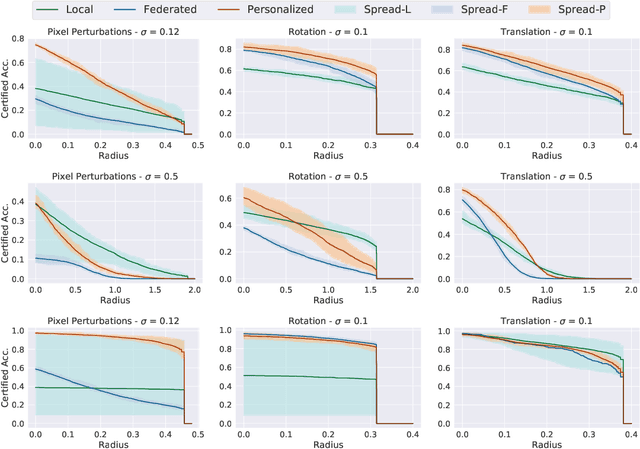Certified Robustness in Federated Learning
Paper and Code
Jun 06, 2022



Federated learning has recently gained significant attention and popularity due to its effectiveness in training machine learning models on distributed data privately. However, as in the single-node supervised learning setup, models trained in federated learning suffer from vulnerability to imperceptible input transformations known as adversarial attacks, questioning their deployment in security-related applications. In this work, we study the interplay between federated training, personalization, and certified robustness. In particular, we deploy randomized smoothing, a widely-used and scalable certification method, to certify deep networks trained on a federated setup against input perturbations and transformations. We find that the simple federated averaging technique is effective in building not only more accurate, but also more certifiably-robust models, compared to training solely on local data. We further analyze personalization, a popular technique in federated training that increases the model's bias towards local data, on robustness. We show several advantages of personalization over both~(that is, only training on local data and federated training) in building more robust models with faster training. Finally, we explore the robustness of mixtures of global and local~(\ie personalized) models, and find that the robustness of local models degrades as they diverge from the global model
 Add to Chrome
Add to Chrome Add to Firefox
Add to Firefox Add to Edge
Add to Edge